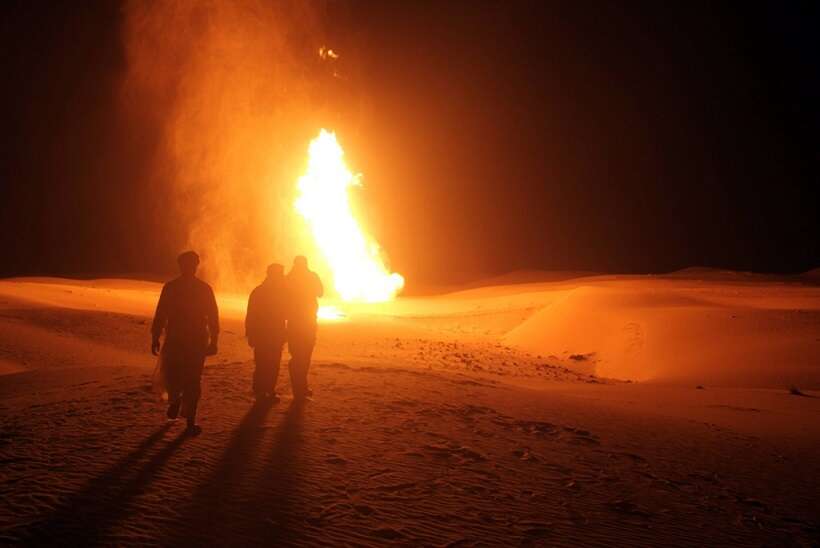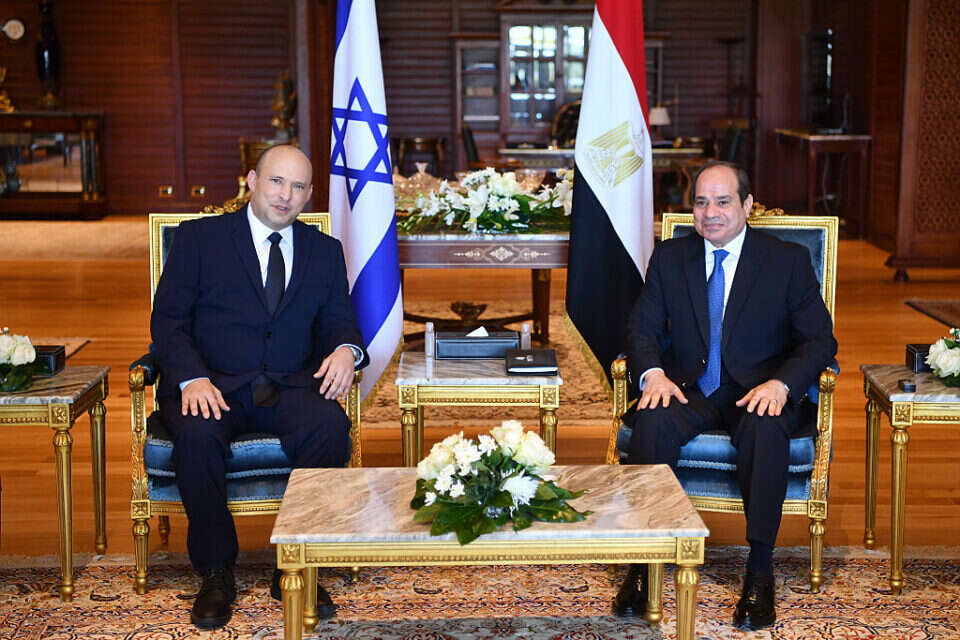In a few months, Egypt will mark 40 years since receiving the Sinai Peninsula back from Israel under the auspices of their peace treaty. Even then, similar to today, some in Israel occasionally argue that ceding the Sinai was a mistake that will cost us dearly one day when Egyptian army divisions cross the Suez Canal into the Sinai and attack Israel along the internationally recognized border.
Follow Israel Hayom on Facebook and Twitter
The Yom Kippur War taught us that we cannot disregard any warning signs, but the accumulated experience of the past 40 years hasn't justified this concern: The border with Egypt, similar to the border with Jordan, has become tranquil from a security perspective, which has allowed the IDF to deploy very sparse forces to man those lines.
Forty years ago, Hosni Mubarak, who died last year, told me as a senior army officer at the time and the commander of the Egyptian air force during the Yom Kippur War, that he was more aware than most about the price of war, and therefore swore: "There will never be another war between us." He reiterated that oath to me several times throughout the years.
And he kept his promise. The cold peace between us and Egypt throughout his 30-year time in power also held firm in the face of crises and harsh conflicts between Israel and its ill-wishers in the Arab world. The Egyptian army never entered the Sinai and the demilitarization agreement has been fastidiously upheld.
A series of threats
However, it was at the twilight of Mubarak's rule, accelerating immensely following his removal 10 years ago, that new threats against Israel began sprouting from the south. One of these threats was linked to the growth and entrenchment of terrorist cells in northern Sinai. These cells are a lethal combination of organizations such as al-Qaida and the Islamic State group and local Bedouin youths frustrated and angry after decades of neglect from the central government in Cairo.

Although the majority of the attacks carried out by these terrorist groups have targeted the Egyptian army – in the Sinai and in Egypt proper as well – Israel, too, has been hit with shootings and missile attacks at Eilat, alongside frequent attacks on gas pipelines. Meanwhile, weapons, equipment, explosives and military knowledge has flowed unimpeded between Egypt and Gaza in the underground tunnels connecting them.
The other threat to rise against Israel from the south in the wake of Mubarak's ouster was the ascent of the Muslim Brotherhood to power and the election of Mohammad Morsi as president. The friendly and ideological ties between Morsi and his camp and the Hamas echelon in Gaza, and the mutual visits between them, sparked considerable concern in Israel. These concerns were amplified even further when Morsi declared his intention to "re-examine" the military addendum to the peace treaty and deploy the Egyptian army to the Sinai.
Both these threats against Israel were erased by General Abdel Fattah el-Sissi, the youngest member of the Supreme Council of the Armed Forces, which had managed Egypt post-Mubarak. In the summer of 2013, el-Sissi kicked Morsi out of the presidential palace and outlawed the Muslim Brotherhood. The sigh of relief emanating from Jerusalem could be heard far and wide.
Simultaneously, el-Sissi launched a campaign, which lasted for several years, to wipe out the jihadist cells in northern Sinai responsible for killing hundreds of Egyptian soldiers and wounding thousands more. According to reports, Israel not only aided this campaign with intelligence information and other means, it even allowed Egypt to deploy dozens of battalions to fight the terrorists.

Within the framework of this military cooperation, el-Sissi almost immediately tasked two battalions with preventing rocket and missile fire at Eilat. At the same time, he took action to debilitate most of the tunnels linking Gaza and the Sinai. The result: the terror was eliminated, even if not yet completely eradicated. The security coordination between Israel and Egypt became stronger.
Out of the north the evil will be unleashed
The skeptics will say this cooperation was merely interest-based and temporary, and can easily be stopped with a decision from high up. They will also argue, justifiably, that we cannot ignore the astounding armament rate of the Egyptian army, which has procured the very best offensive weaponry from the West in recent years. Submarines, warplanes and much more, while also building new bases and developing its military infrastructure. "One day, all of it will be turned against us," they say.
Additionally, there is no apparent explanation for this armament aside, perhaps, from Egypt's desire to preserve its status as a strong and significant player in the Middle East and to prepare for future threats in the Mediterranean Sea from powers such as Turkey, which could try appropriating the still undrilled gas reservoirs in the area.
When assessing a military threat, however, it isn't enough to point only at capability. One must also point at intent. And the Egyptian president is not only bolstering security cooperation with Israel, he has also taken several cautious steps recently – perhaps influenced by Israel's peace treaties with the Gulf states – to normalize other aspects of the relationship. He publicly met Prime Minister Naftali Bennett in Cairo, an Egyptair flight landed in Israel, and surprisingly, he publicly called on other Arab states to follow in the footsteps of Anwar Sadat and make peace with Israel.
It's true that in any future conflict with Egypt, if one were ever to erupt, the IDF will have to contend with a massive army equipped with modern, sophisticated weapons. At this current juncture, however, the clear and present dangers to Israel are from the north, not the south.
Subscribe to Israel Hayom's daily newsletter and never miss our top stories!




